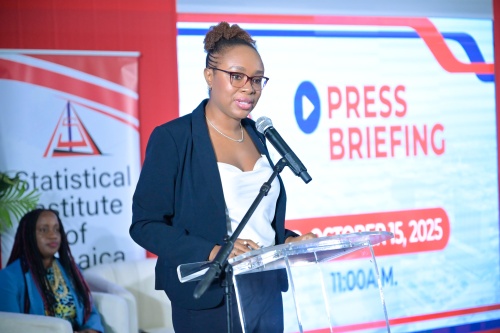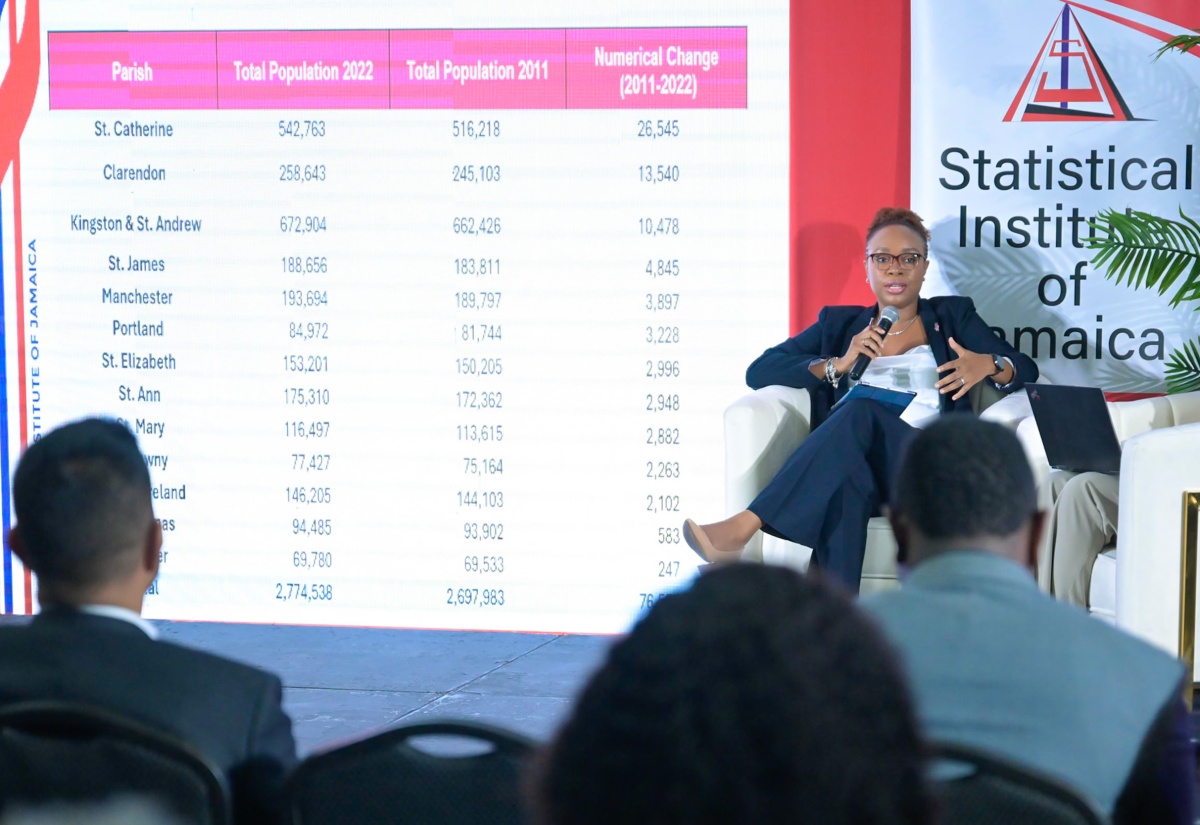STATIN Begins Planning for Jamaica’s 16th National Census in 2031
By: , October 17, 2025The Full Story
The Statistical Institute of Jamaica (STATIN) has initiated preparations for the country’s 16th Population and Housing Census, scheduled for 2031.
Addressing STATIN’s Quarterly Press Briefing, held on Wednesday (October 15) at S Hotel in Kingston, Director General, Leesha Delatie-Budair, said the Institute intends to apply the lessons learned from the 2022 census as planning begins for the 2031 iteration.

Ms. Delatie-Budair emphasised the importance of streamlining STATIN’s internal systems.
“We also note that our data collection instruments have to be smaller, because persons no longer are willing to sit and talk with us for an extended period of time,” she said.
The Director General shared that STATIN is looking to utilise self-enumeration and web-based questionnaires more effectively, in response to growing public concerns about sharing personal information with others.
Meanwhile, Ms. Delatie-Budair disclosed that STATIN has launched an initiative – supported by the United Nations Statistics Division – called the Data’s Project, formally known as Data for Small Island Developing States (SIDS), aimed at developing enhanced geo-referenced information for future censuses.
“There are also discussions that are ongoing with local partners about how we can access administrative data to improve the collection processes. We will continue to consult with our various stakeholders and those who are older and wiser and can guide us, because we want to ensure that for each experience and for each round of censuses, we are building on the lessons learned, we are applying new principles and we are growing from our experiences,” the Director General stated.
For the first time, the recently concluded census integrated innovative technologies, including tablet computers for data collection and digital systems to support recruitment, human resource management, and operational monitoring.
“We partnered with the Ministry of Education, Skills, Youth and Information, and once the census takers were done using the tablets, we actually donated those to the Tablets in Schools Programme. So far, we have actually handed over more than 5,500 tablets, and this is something that we are very proud of because, for us, it is our simple way of giving back to the next generation to enable them to be better digitally enabled and prepared for the future,” Ms. Delatie-Budair said.
In Jamaica, a population and housing census is conducted every 10 years to generate benchmark estimates on population size, along with key demographic and socio-economic indicators that inform policy planning and decision-making across government, private sector, and civil society.




